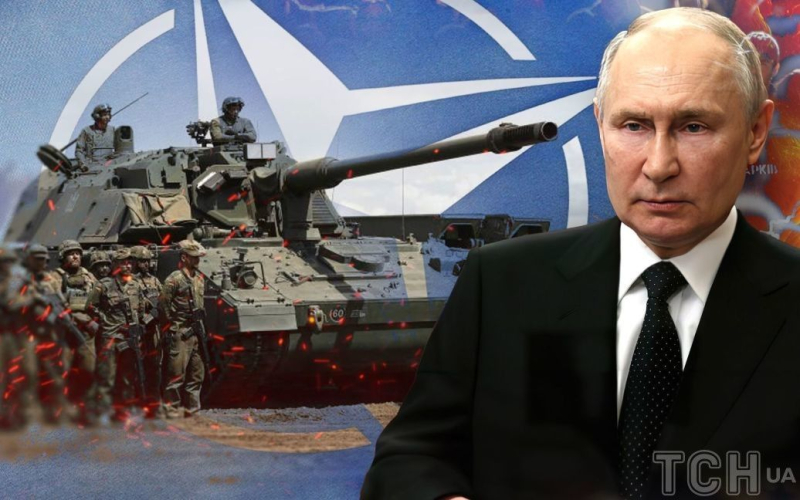NATO is strengthening its presence in each of the three Baltic states. But the leaders of these countries complain that some members of the Alliance still do not seem to understand the threat.
Two years after the invasion of Ukraine The Baltic countries are wary of an emboldened Russia with its imperialist ambitions and are preparing for a possible war with it.
This is stated in the publication of Bloomberg.
The article states that a few hours' drive east of Riga, a sign in Latvian and English is posted for motorists indicating that they are entering “Prigranichnye”. It is forbidden to stop cars and take photos there. Watchtowers overlook the strip of birch and pine trees that mark the border with Russia.
“This is the border of the European Union and the border of NATO's reach. It is a border filled with the latest cameras and sensor technology in anticipation that Vladimir Putin may be preparing to violate it,” the material notes.
The signs of concern are not unfounded: warnings from Moscow have been coming quite quickly lately, and the Baltic countries of Latvia, Lithuania and Estonia have had bitter experience of what this could mean.
Russian threat to Estonia
During his presidential campaign on January 16, Russian President Vladimir Putin described Latvia's treatment of ethnic Russians as a security problem. This rhetoric is similar to that used before the Russian invasion of Ukraine. Russian posters on the border with Estonia proclaim: “The borders of Russia – they never end.”
Even more ominously, Russia targeted Estonian cities during military exercises in the summer of 2022, months after a full-scale attack on Ukraine. The Russian Ministry of Defense then refused to comment.
“They point their guns at us, enter all the data, but don’t actually pull the trigger,” Gen. Martin Herem, commander of the Estonian Defense Forces, said in an interview at the Joint Military Command headquarters in Tallinn. He compares the actions of the Russian Federation with the actions of a “bandit” starting a brawl on the street: “They are trying to create a reason.”
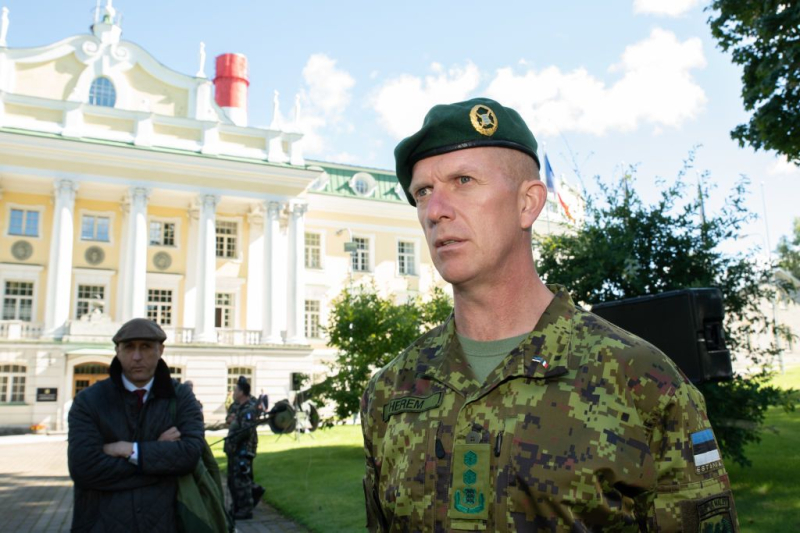
It is noted that the Baltic countries are accustomed to intimidation from Moscow, their membership in the EU and NATO helped dull them. But the full-scale invasion of Ukraine changed that equation. Now the weak efforts of the West to help Kyiv and the inexorable transition of the Russian Federation to a war economy, while maintaining public support, create the feeling of a new threat.
According to Herem, over the past six months it has become clear – Russia is capable of producing many times more ammunition than previously thought. The general said the volume was several million shells per year. He also noted that the Russian Federation has no problems finding military personnel. At a press conference in December 2023, Putin said that Russia was recruiting 1,500 volunteers per day.
“Military experts have had no illusions for the past two years, but we lacked facts. Now we can back up our instincts with concrete facts, and no one can accuse us of warmongering,” said the Force Commander defense of Estonia.
Read the main news of the day:
The Baltic countries warned about Russian aggression long before Putin's full-scale invasion of Ukraine
The three Baltic countries have long been primed for Russian aggression, warning of this long before Putin launched his full-scale invasion of Ukraine on February 24, 2022. Since then, Baltic leaders have spearheaded calls to side with Ukraine and bolster defenses, moving forward with military equipment purchases ranging from missiles to drones and fortifying the border.
“Nobody does not expect Putin to launch an immediate attack, not least because Russia is fully engaged in Ukraine and is busy trying to replenish its military personnel and equipment,” the article says.
Despite Putin's assurances that there is no “reason or interest” to fight NATO countries, Baltic officials believe that the President of the Russian Federation can more boldly consider the possibility of expanding his imperialist ambitions. Because the Baltic states are small former Soviet republics bordering the Russian Federation and home to significant Russian-speaking minorities, they see themselves as prime candidates to be next in the line of fire.
What they say about the Russian threat in Lithuania
“I perceive today's situation as a great temptation for Russia to attack the West and NATO countries, since they see our indecisiveness in supporting Ukraine,” – said former Lithuanian President Dalia Grybauskaite, who met with Putin while in office.
Grybauskaite also called the current hesitation regarding assistance to Ukraine “a big strategic and tactical mistake, because sooner or later he (Putin – ed.) will see a window of opportunity and go for it.”
According to her, it is already too late for containment, instead defenses must be strengthened – and urgently.
“Because we won’t even have a day. The external territories are 300 kilometers wide, and we are not talking about days or weeks, but about hours,” the ex-president of Lithuania emphasized.
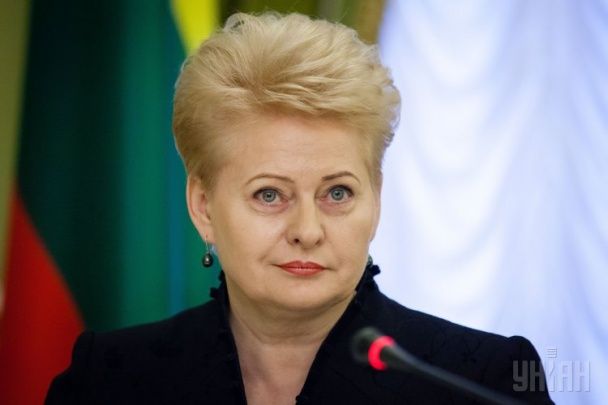
Grybauskaite is known for her hawkish voice on Russia. But similar calls for the need to prepare for war are also coming from other countries, for example from Norway and Sweden, which, following Finland, is in the process of joining the Alliance, turning the Baltic Sea into a “NATO lake”.
Baltic states complain that some NATO members still don't recognize the threat
NATO is strengthening its presence through battle groups in each of the three Baltic states. But their leaders complain that some Alliance members still don't seem to recognize the threat.
Estonian Prime Minister Kaja Kallas laments the fact that 10 years after the Alliance allies agreed to spend 2% of GDP on defense, many are still facing shortages, despite the threat of war.
“And why? I think because this war seems very far away, and some leaders may still think that you don't need to spend it on defense because the threat is not so real,” Callas said in an interview on January 16.
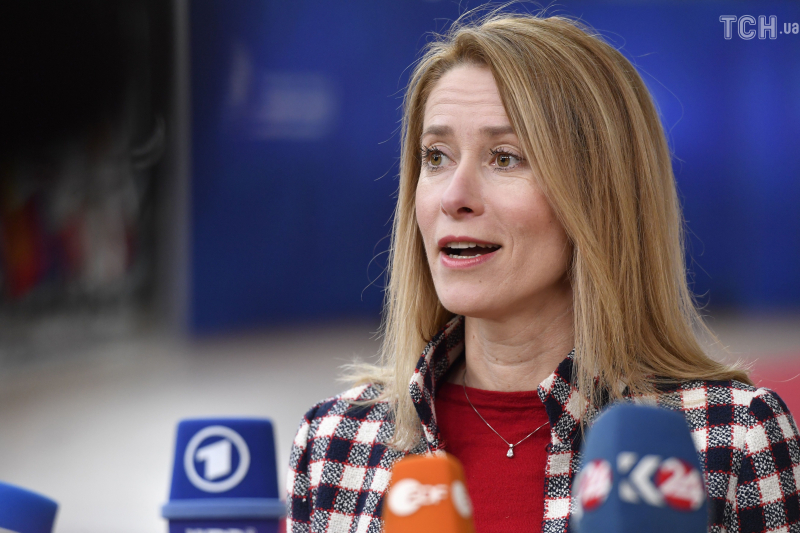
How the Baltic countries are preparing for war with Russia
The Baltic countries do not wait for others. They are increasing defense spending, buying air defense and coastal defense systems, HIMARS missile launchers, and considering wider military conscription.
Estonia, for example, was the largest buyer of 155mm artillery shells in the EU last year. They agreed to build hundreds of bunkers along the Russian border. Latvia briefly considered mining the area before abandoning the idea.
Baltic States also took other measures. Thus, Latvia has strengthened residency criteria for some Russians, and Estonia expelled the head of the Orthodox Church in Tallinn for activities against the state.
Moscow is closely watching all this.
“The events that are now taking place in Latvia and other Baltic countries, when the Russian people are being thrown out, are very serious and have a direct impact on the security of our country,” Putin said.
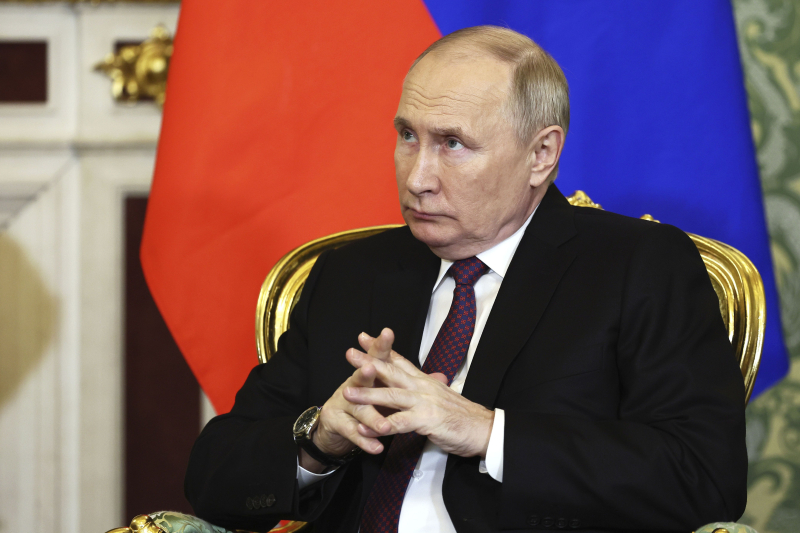
Western intelligence agencies estimate there are three to five years before Russia can pose a threat after the resumption of the military machine in the event of a cessation of hostilities in Ukraine.
But Estonian military commander General Herem highly appreciates Russia’s capabilities.
“Russia is not yet ready to enter into a military conflict with NATO. This will not happen today or tomorrow. But even in a year or six months they can do something terrible to us. They don't need to go to Warsaw or Berlin, or even Tallinn. This can take the form of a small military aggression,” the Estonian general assessed.
Recall that the German publication Bild reported that it allegedly gained access to a secret document from the German Ministry of Defense. According to him, escalation between NATO and Russia could take place as early as February 2024.
Read also:
Related topics:
More news

